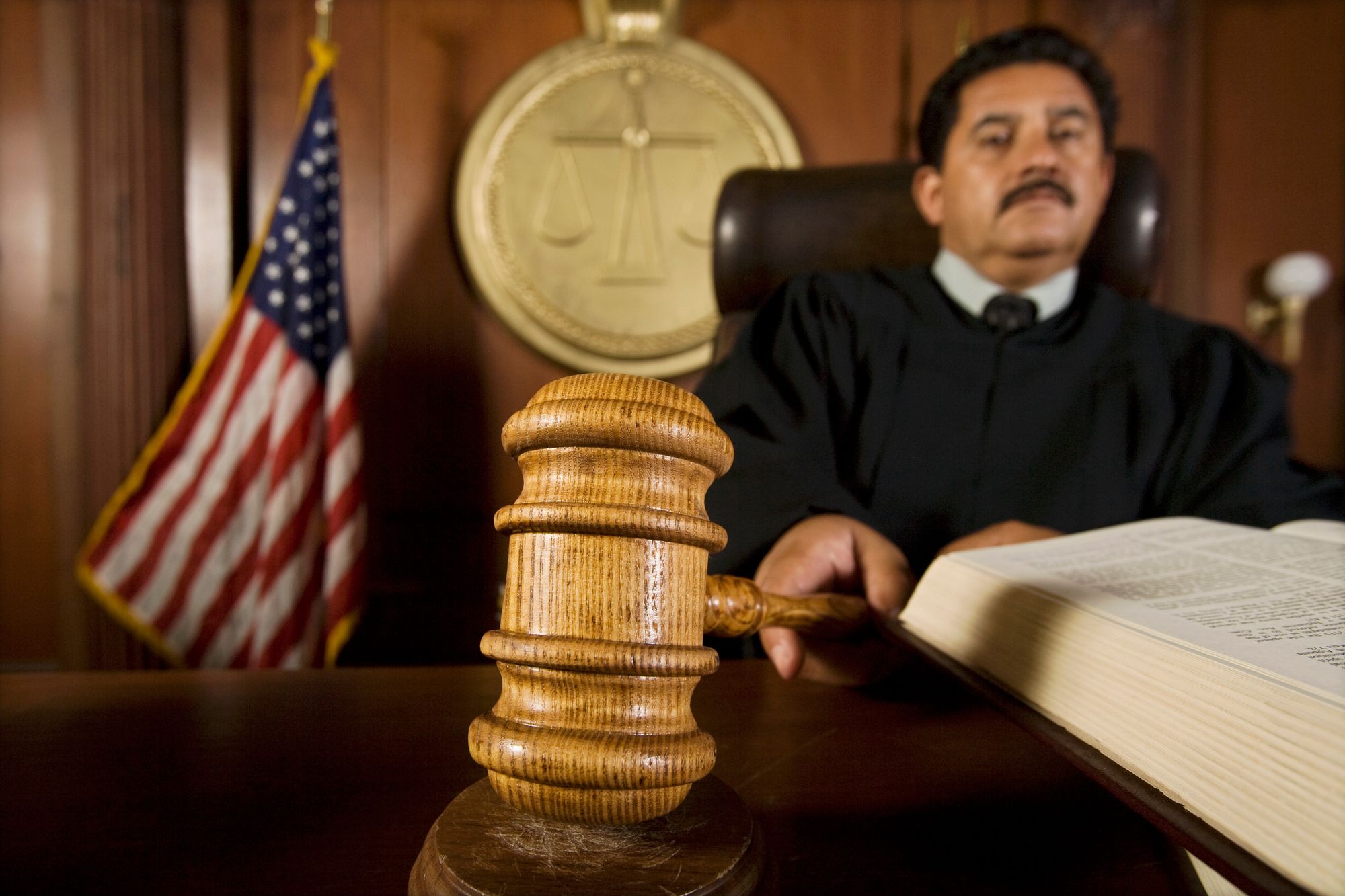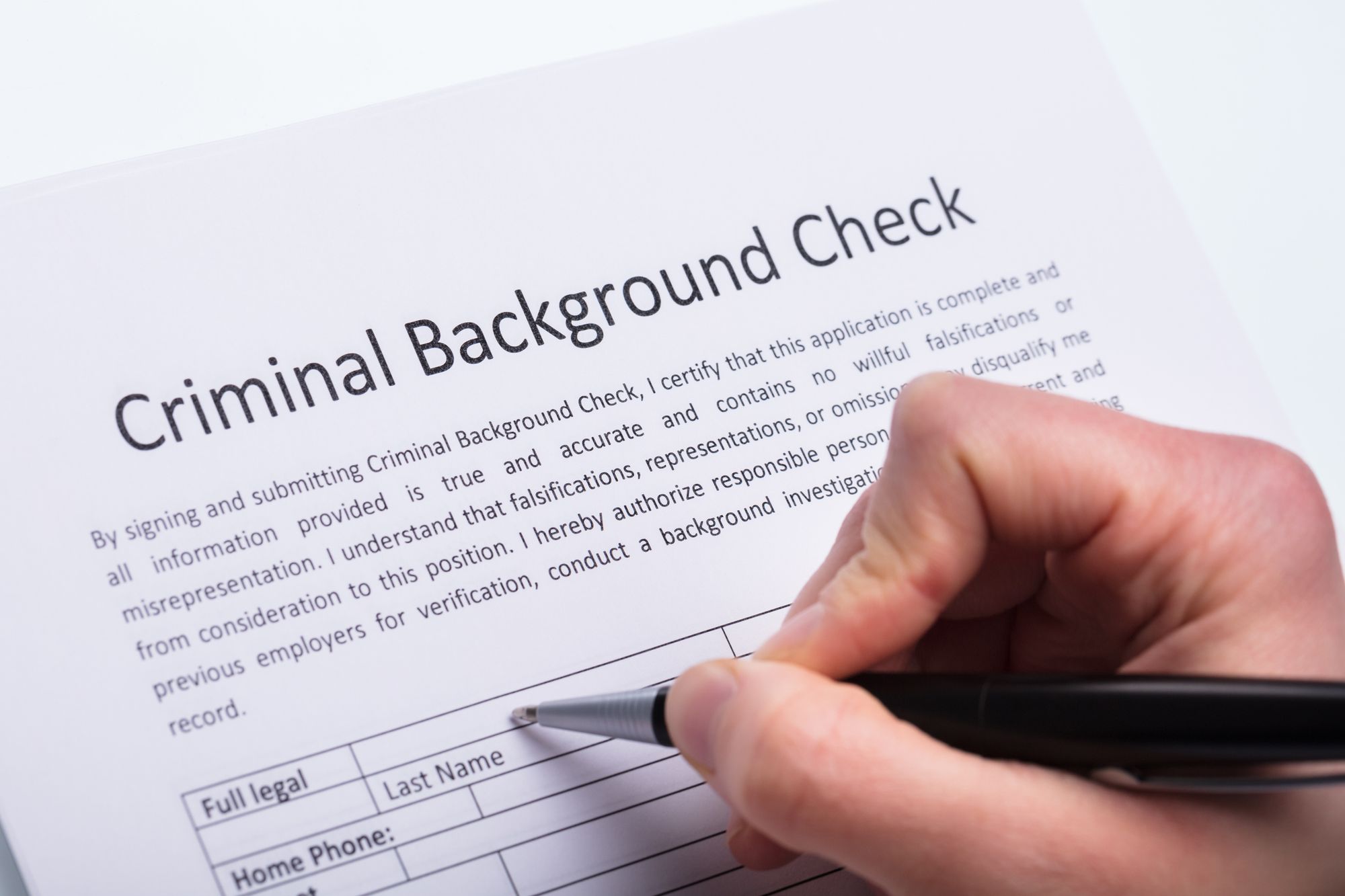Ariel Frogge
What Does Disposition Mean in a Criminal Case?
In this article, we unravel the common question ‘what does disposition mean in a criminal case’ and explore some of its examples.

Disposition is a complex term with nuanced meanings and implications in criminal cases. Depending on the kind of case and its severity, disposition can refer to guilt or innocence, acquittal or conviction, a sentence imposed, rehabilitation efforts, appeal possibilities, or more. These outcomes are largely determined through legal protocols but may take personal context into consideration when possible.
It is ultimately left to the judge and jury to determine the particulars of each situation based on the circumstances presented, so one case of disposition can look incredibly different from another, even under identical circumstances. Understanding this concept in full depth requires research and analysis into both legal and humanistic arenas.
Run A Free Background SearchDifferent Types of Dispositions
Diversion Programs
Diversion programs are beneficial for both the defendant and society in general. For defendants, it helps them avoid a criminal record, achieve rehabilitation, and continue to contribute to their community by obeying the court’s requirements. Diversion programs can also reduce repeat offenses as well as provide more productive alternatives to imprisonment or jail time.
As a result, diversion programs prove to be an effective way of balancing justice with the defendant’s rights. Such programs also demonstrate what is possible when we take into consideration the individual needs of each case instead of simply punishing someone for mistakes made in the past.
The advantages of such alternatives should ensure that these options are always available, as they benefit society as a whole while providing a potential lifeline to those faced with a criminal charge.
Diversion programs can help make a dramatic difference in our criminal justice system, provided they are implemented with intentional thought and strategy. It is evident that prevention and intervention are the keys to creating meaningful change—it’s a matter of taking the time to evaluate how best to use available resources.
Research has shown that there are currently disparities in program uptake related to race, gender, class, and other factors. It is important that we continue conversations around these topics so that we can create systemic and social change more effectively. Diversion must be allocated based on its fairness and ability to provide rehabilitation because, without it, our courts will never reach their full potential for reform.
Plea Bargains
Disposition in a criminal case refers to closing the case with a particular outcome. Depending on the severity of the crime, this could range from a dismissal/acquittal to sentencing and alternatives like plea agreements.
Plea bargains are an important tool in the criminal justice system. They allow defendants an opportunity to take responsibility for their actions, accept a reduced charge or sentence, and avoid a lengthy and costly trial that neither party might be sure of winning. By avoiding trials and reducing the severity of defendants’ punishments, they often allow for more efficient outcomes than what would otherwise be seen in a courtroom setting. Moreover, they can provide benefits to both sides of the prosecution–defense dynamic
While plea bargains have their drawbacks and may not always produce results that are deemed satisfactory by the parties involved, their importance to the criminal justice system is undeniable. With this understanding, it is essential that society moves towards crafting fairer and more equitable plea bargain arrangements so that justice can be fairly served in our current legal system.
All this goes to show that understanding disposition in a criminal case is crucial for both citizens and legal professionals alike. If there’s anything we can learn by looking at all these examples, it’s that seeking expert legal advice can make all the difference when it comes time for courts to determine appropriate outcomes.
Ultimately, disposition is an important part of any criminal trial as it determines how offenders are held accountable and what consequences are assigned for their actions. Though civil citations may lead to similar results, these decisions will remain firmly in the hands of the criminal justice system in order to protect citizens’ rights and ensure justice is served.

Sentencing
After a jury or judge renders a guilty verdict in a criminal case, the sentencing phase is the final justice. Depending on the facts, severity and public safety considerations, judges make difficult decisions by weighing options that balance the circumstances of each case with the interests of society.
While there are many types of dispositions – fines, probation, community service, and incarceration – these ultimately rest in the discretion of the court to ensure justice is properly served. Although a specific penalty cannot make up for all damage incurred in these cases, dispositions remain an effective way to ensure offender accountability while recognizing varied degrees of criminality.
A sentencing hearing provides closure on an emotionally-difficult trial by serving as the benchmark for upholding social accountability in law enforcement. Additionally, sentences can be of great emotional consequence for defendants and their families. A fair and equitable result will require careful thought and consideration on behalf of the judge while delivering justice in cases ranging from simple misdemeanors to heinous felonies.
In a criminal justice system where the outcomes greatly influence people’s lives, understanding all the potential dispositions is paramount to ensuring adequate sentencing. Understanding what is at stake allows us to evaluate whether a given sentence best serves the interests of justice.
Acquittal
Acquittal is an outcome of a criminal proceeding that is highly sought after by defendants but rarely attained. While becoming acquitted may often depend on the evidence provided and other factors determined by the court, it remains a reality available to those who proceed with due diligence and legal representation.
It can be said that with a proper understanding of one’s rights and a sound defense strategy, defendants have a chance of being found not guilty and ultimately avoiding the life-altering consequences associated with criminal convictions.
Although uncommon, acquittals do occur and can often result in affirmations of innocence for unsuspecting individuals who were unjustly accused. As such, it is worth seeking proper legal counsel to maximize one’s chances of being acquitted—particularly if facing criminal charges.
Many Acquittals have also taken place without a trial due to various reasons such as witness recantation, witnesses unable to be found or changes in legal status while the case od underway.
More recently, prosecutors and judges have acted on their own accord in making decisions that result in the Acquittal of defendants who may not be solely innocent in particular cases but perhaps treated with more leniency due to factors outside of any direct empirical evidence.
The process for Acquittal is highly complex and ultimately meant to reach justice regardless of guilt or innocence through careful consideration of all facts presented before the court.
Dismissal
Dismissals are an interesting outcome of criminal cases. It typically occurs when there is not enough evidence to prove the person’s guilt or a procedural error is made. While it looks similar to an acquittal, a dismissal leaves open the possibility that charges can be refiled against the defendant in the future.
This disposition gives victims hope that justice may still be obtained but also offers some protection from too much rigidity in our legal systems. Dismissals often depend on many factors, and their ultimate decision tends to evoke a strong emotional response from both sides of law enforcement and those affected by the case resolution.
However, Dismissals should not be seen as a win but rather as an opportunity to take the necessary steps to ensure the full accuracy and truth of any case. This could include double-checking the evidence, challenging procedural errors, understanding dismissal rulings and what effect this ruling can have on a person's future cases.
Understanding the complexities of dismissal dispositions is essential for anyone who finds themselves or their loved one attached to such proceedings. The knowledge that one gains from gaining this type of insight can help prepare individuals for navigating other potential charges in the future or even lobbying for changes in policies to help protect others from similar predicaments.
In the end, knowledge is power, and an informed person with an understanding of these kinds of dispositions will be better equipped when negotiating these types of situations.
Summing Up Disposition
Disposition plays an important role in criminal cases and is crucial to evaluating a case from the initial stages through trial. It allows law enforcement to understand how a case was handled and provides transparency and integrity into the criminal justice system.
While disposition may not always be as straightforward as it appears on paper, its outcome can have a major impact on government resources, defendants’ rights, and public safety. Knowing what disposition means for a particular criminal case–and how other elements like plea deals influence court rulings–provides an insight into the complexity of our legal system as well as how criminal justice functions are evolving in today's modern landscape.
Ultimately, understanding the definition and implications of dispositions in criminal cases can be essential in ensuring individuals receive their proper due process within the courtroom.
Run A Free Background Search



